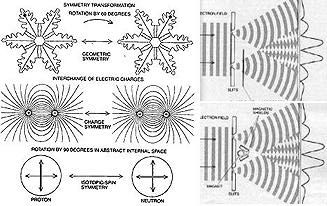


To those skeptics who try to castigate the Bible by pointing out anachronisms of morality, such as slavery and polygamy, my standard answer has always been that God respects social evolution. Perhaps this deserves some explaining.
What if God set up HQ in central park and held a press conference. At that press conference he said that all Republicans must go to concentration camps, anyone engaging in capitalistic enterprize at any level had to repent and give it us, and a socialisitic system like that of Stalin had to be establshed world wide forth with. Mroeover, he would say that hence forth all scinece must be banned and and scientific turths would be gleaned by prophetic gifts. Now he can be proven absolutely to be God, so you better do as he says. How many people in our modern world do you think would sruvive two days? How many would come out loving God or how many would pretend to obey but secretly think God is a sick and evil fool? How many right wing reacitonaries would be satanistas, or would accuse God of being satan?
First, my basic premise is that God is experienced at the mystical level. That means that beyond thought, word, or image, we are experiencing God in a way that cant' be truly understood or spoken accept in the deep recesses of our consciousness. This manifests itself in many ways, behavior, attempts at speech inadequate though they are, and other ways as well. I should point out here that I am not debarring God speaking directly or that I am not saying God doesn't use other forms of communication too, but that is the most basic and most universal; beyond conscious understanding, the mystical level.
Being social creatures, we must speak of our experiences of the divine, especially the more powerful experiences that flood our consciousness. I believe we all experience God to some degree, each and everyone of us, but some do so to such a powerful degree that the experience breaks in to our natural consciousness. But how can we speak of a truth and a reality beyond words? We can only do this by encoding our impressions into cultural constructs. That means they are all inadequate, and yet they are as adequate as anything of which we can speak, for all language bears that limitation of being encoded in culture. Language is culture, therefore, the encoding of language in cultural constructs means that all our communications fall short of their true marks.
Be that as it may, this cultural aspect means the difference between religious traditions. This is all a religious tradition is, the vocabulary that is applied in a certain set. A religious tradition is just the creation of a vocabulary for the sake of having a set of conventional references through which one's mystical experience can be given a meaningful context (and btw that is also how I see the OT; that is the function of the OT, to create a context in which Jesus as Messiah is meaningful). Thus, there is a connection between God, social evolution, morality and culture, and the truth of God must, a priori be understood viewed through the lens of a cultural understanding (that's the only way we ever understand anything--since language is culture all verbal understanding and raciocentenation is nothing but cultural understanding).
Secondly, the unchanging reality of God is revealed to us through Jesus Christ. The function of the OT is the creation of a meaningful context for the work of Christ as redeemer. But in Jesus' character (teachings, actions) we see God's universal and unchanging character. For this reason skeptics often say Jesus is far different from the God of the OT. All the aspects of Christ are seen the God of the OT, and certain aspects of that God are seen in Christ of the NT. But the real difference is that of shadow vs. substance. The author of (Pricillia?) Hebrews tells us that from OT to that time of Christ's appearing we move from shadow to substance. The things of the OT are types and shadows, the reality is Christ. "In many ways God spoke through the prophets, but in these latter times he has spoken perfectly through his son." (My trans). So we understand the true nature of God and God's unchanging ways through observation of Jesus.
This always brings up the charge of relativism and it can come in several forms. One such form is to say "well, so if we start having slavery again it becomes part of our culture and thus is ok with God?" But this is a failure to distinguish between society and culture. Not everything done in society is the limit of our cultural understanding. We cannot go back to slavery because we understand what's wrong with it. God only tries to enlighten people in so far as their cultural evolution will bear it. What would be the point in trying to show people int he ancient world that they are negating individual rights when the cultural had not yet evolved to the point of an understanding of individuality? But we in the :"postmodern" West, do understand the evil of slavery and so we cannot go back to it. When we find aspects of it still in practice we know it's wrong. We have a profound basis for demonstrating the wrong nature of slavery.
Another argument is made that this view sanctions cultural relativism. It says that if something is wrong now it was wrong 10,000 years ago and thus God could not excuse it. That's true, but God didn't undertake to explain to people why economic monopolies were wrong. why? Because there weren't any, there wasn't any capitalism. It would have made no sense. God did not undertake to explain why one-man-one-vote is a sacred principle, or why democracy is of God (if you want to understand that--go read John Lock's two treateses on Government). It would have made no sense to explain democracy to people living 4000 years before the French Revolution because they had no idea. They had no basis in conceptions, the basic Magna Charta had not yet been penned let alone the works of the French Philosophes or the American constitution.
It is not a matter of saying that right or wrong is established by culture, but even C.S. Lewis (Mere Christianity) admits that right and wrong are transmitted and taught through culture. I have previously established the necessity of free will in the economy of God. In order for that to have any meaning, people must be brought along to a cognitive state where they develop their own understanding, that's why God doesn't want us to just be robots who are incapable of doing wrong. We have to develop as free moral agents. The point is that for this reason God must proceed at a pace comensurate with huamn social evolution. Sins are charged agsint man in the OT, but only those that can be understood by people at the time. That's the basic gist of the ten commandments: don't kill, don't steal, don't lie, don't cheat, no incest. These are the basic univeresal views found in all cultures. There are no idividualistic or existentialist understandings because those would have been beyond the understanding of the day. People are not givne more than they can conceptually comprehend. They are not blamed for sins they cannot understand.
We can understand these things, we an move beyond that time. This "if its not the book it's not true" kind of mentlaity is what puts Christiain politics back in the dark ages. People limit themselves to the cultural understanding of the ancient world insteading of trying to place the values behind biblical injunction in modern times and see how they apply to our context, without expecting them to apply in the same way they did in Abraham's time. This is not as hopeless as it seems, neither is it as realitivistic. After all, we have the example of Jesus to guide us. Jesus is the prefect revealiation of God to humanity and through him we can see the truth of God's nature. We can apply Jesus teaching and actions to our own time. We always know that the guiding principle is love. But we can also understand that God let somethings slide in the ancient world, just as he didn't try to give them a modern understanding of science and medicine, why? Because they couldn't take it. We can and we can understand what that core morality is that is always applicable, and we can understand how to apply it to our day, because we have the universal examplke of Jesus to live by.

2 comments:
I know you are, but what am I?
Damnation, Damnation, boom ba!
Post a Comment